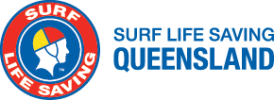1. With specific reference to issues management please refer to item one of this document and if there is any doubt please contact the Media Team.
2. SLSQ encourages clubs and branches to obtain media support for their local activities and events.
3. Clubs and branches may speak on local issues, such as a rescue at their beach, local fundraiser, etc. It is important that our volunteer lifesavers are recognised for their achievements, so publicising these actions is vital.
4. SLSQ asks clubs, branches and members to keep their media content to local issues only, and ask that they do not comment on any issue that relates to SLSQ policy or procedures, or that impacts on the entire state. This should be referred to the Lifesaving Services Coordinator or Regional Manager.
5. Please contact SurfCom immediately when a major incident occurs in your region e.g. a drowning; mass rescue; major marine sting, etc. – If it is outside SurfCom hours, contact your Lifesaving Services Coordinator or Regional Manager
6. The Lifesaving Services Coordinator/Regional Manager will inform all necessary people (Media and Communications Manager, councils, Operations Manager, Lifeguard Supervisors, etc.).
7. The media is a powerful tool. Clubs and their members should never use the media to argue a position with SLSQ or their Branch. If there is an issue that you want to resolve, please discuss with the appropriate personnel.
8. Be aware that issues are not only generated by media. When an incident occurs in your area (e.g. drowning; IRB injury; etc.) contact SurfCom or your Lifesaving Services Coordinator before the media contacts you – this way we can be proactive in our dealings with them.
9. Always contact your Lifesaving Services Coordinator or Regional Manager when critical issues (e.g. member protection, insurances, legal issues, etc.) emerge. That way we can prepare before the media is aware of the situation.
10. The SLSQ Media Team may appoint specific spokespeople on some issues. Lifesaving Services Coordinators and Regional Managers may be used in regional areas to provide comment on specific issues that affect clubs or branches.
11. While it can be difficult to assess a situation (particularly sensitive issues) and media can be quite demanding, please try to be considerate and polite to all who contact you. They may not be aware of the constraints which you are under.
12. When dealing with persistent media, please be considerate and polite – even if they are pushing you for comment. Patrolling members – direct them to your Patrol Captain. Patrol Captains – direct them to the SLSQ Media Team
13. Never say “no comment”. This only makes the media more interested in finding information. Instead, use the phrase “I am unable to comment on this issue, but I will introduce you to our Patrol Captain who will be able to assist you”. The Patrol Captain can then refer the media to SLSQ’s Media Team.
14. Do not, under any circumstances, criticise any media if they do not wish to pursue proactive stories.
15. It is really important to promote the positives of our service – remember to also report any incidents that are good news (e.g. rescues). We can positively promote this and recognise your achievements.
16. We must also be proactive with media to demonstrate our authority in aquatic safety by providing surf/beach reports, safety warnings, etc. to beachgoers through the media. This is encouraged!
17. At all times, please observe the following guidelines:
• Don’t give names of patients;
• Don’t exaggerate the incident;
• Don’t give your opinion; and
• Don’t criticise Surf Life Saving Queensland or any other clubs/branches/members, any council or local authority, members or staff of other organisations, or other services.
18. If completing a media release, always print it on club letterhead.
19. The Media Team is always willing to assist with the promotion of your club activities. SLSQ can offer advice and point you in the right direction to optimise club-specific good news stories. In some circumstances the story may very well have state-wide significance, in which case media personnel can provide total support of the initiative.



Post your comment on this topic.